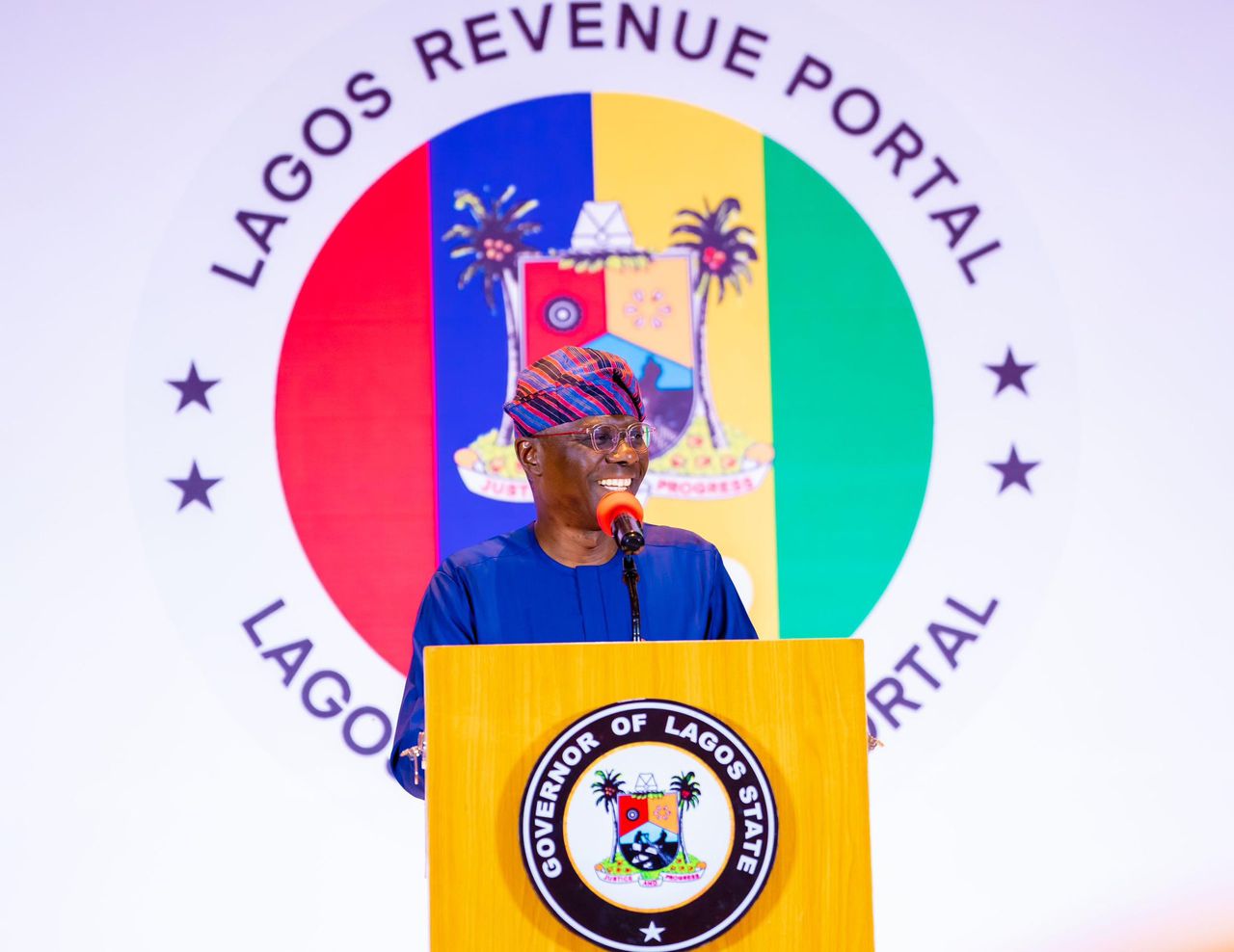On 15 August, Lagos State Governor Babajide Sanwo-Olu launched the Lagos Revenue Portal (LRP), a digital platform designed to streamline the administration of the State’s Internally Generated Revenue (IGR).
The newly launched website serves as a one-stop automated portal for the collection of all taxes and levies payable to the State Government, making it easier for taxpayers to make payments and view all their bills in one window.
The LRP centralises e-bills from multiple Ministries, Departments, and Agencies (MDAs) into a single account, offering seamless payment gateways, log generation, payment history tracking, smart reconciliations, and remittance statements.
Internally Generated Revenue (IGR) in Lagos
The Lagos State Internal Revenue Service (LIRS) is responsible for collecting taxes and other revenues on behalf of the State Government.
For over two decades, Lagos State has consistently led Nigeria in terms of internally generated revenue.
From the military era of Brig. Gen. Mobolaji Johnson, where the state’s revenue grew from N36.7 million to N99.7 million, to generating N11.3 billion monthly in 2009 and approximately N32 billion in 2019, Lagos State has become less dependent on proceeds from the Federation Account and Federal Allocation.
In 2021, the National Bureau of Statistics listed Lagos State as having the highest internally generated revenue among Nigerian states, amounting to N651.15 billion.
In a bid to improve tax collection, LIRS introduced the Eco Fiscal System (EFS) in 2023, an upgraded digital payment solution for businesses in the hospitality sector, such as hotels, event centres, restaurants, bars, and related facilities.
Is the Lagos Revenue Portal (LRP) a step forward for taxpayers?
Before the launch of this portal, taxes in Lagos were paid separately on different revenue generating sites, often requiring navigation through multiple systems.
The primary goal of LRP is to improve the taxpayer experience by offering self-service options, additional payment gateways, and multiple payment channels.
The LRP acts as a comprehensive hub, consolidating bills from various MDAs into one accessible location. This not only centralises billing information but also significantly reduces the time required for making payments.
This efficiency is particularly valuable for busy individuals and businesses, streamlining their financial transactions.
Key Features of the Lagos Revenue Portal (LRP)
- Smart Bill Management: The LRP features an intelligent bill management system that identifies and highlights urgent bills, helping users avoid penalties and late payments. By focusing on time-sensitive dues, the portal enables citizens to manage their financial obligations effectively and meet payment deadlines.
- Streamlined Payment System: A major highlight of the LRP is its efficient payment system. The portal offers the convenience of online payments, allowing users to receive Automated Revenue Receipts instantly. This ensures timely and accurate transaction records, providing peace of mind.
- Accurate Automated Reconciliation: The LRP includes a smart reconciliation feature that automatically aligns payments with invoices. This reduces errors and ensures accurate financial records, promoting transparency and accountability in revenue management.
- Eco-Friendly Digital Invoicing: The LRP supports electronic invoicing, moving towards a paperless process. This shift enhances record-keeping and improves access to billing information, while also contributing to environmental conservation by reducing paper usage.
- Enhanced Efficiency Through Automation: Automation plays a key role in the LRP, reducing errors and delays in revenue management. The portal ensures swift and accurate payment processing and receipt generation, benefiting both users and the overall revenue system.
Impact of LRP on Lagos Revenue Collection
The LRP is expected to have a significant impact on revenue collection in Lagos State. By simplifying the payment process and improving compliance, the state government is likely to see an increase in the volume of payments made.
Additionally, the platform’s data analytics capabilities will provide insights into revenue trends, enabling the government to make more informed decisions about policy and resource allocation.
While urging the tax-paying public and stakeholders to embrace this innovation, Governor Sanwo-Olu emphasised that the LRP is a necessary change to block revenue leakage and enhance transparency.
“This transition is a game-changer, and it demonstrates our administration’s commitment to innovation, transparency, and programmes aimed at improving the Ease of Doing Business in Lagos.”
Potential Economic Benefits for Lagos State
According to a tax consultant, the LRP offers significant economic benefits. These benefits, while difficult to quantify fully, include simplifying the revenue monitoring process for both taxpayers and the government.
“You know what you pay for without having to visit different revenue-generating sites. It saves time that would otherwise be spent on such tasks. It also reduces the physical contact that most taxpayers prefer to avoid when dealing with government services. On the government’s side, it allows agencies to focus more on the administrative aspects of their jobs,” the consultant said.


